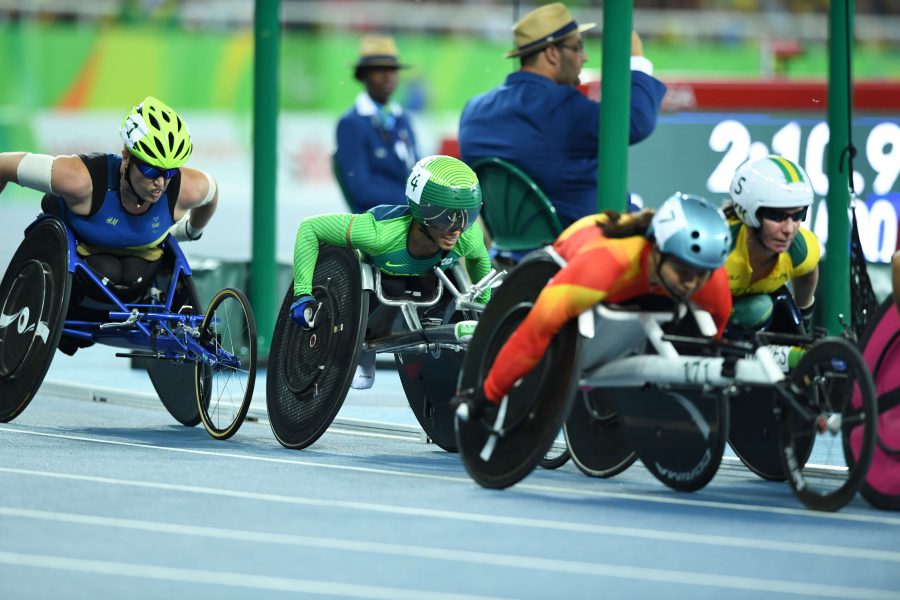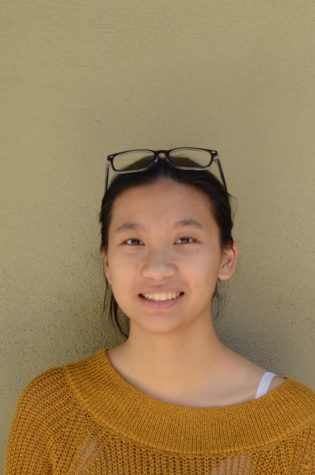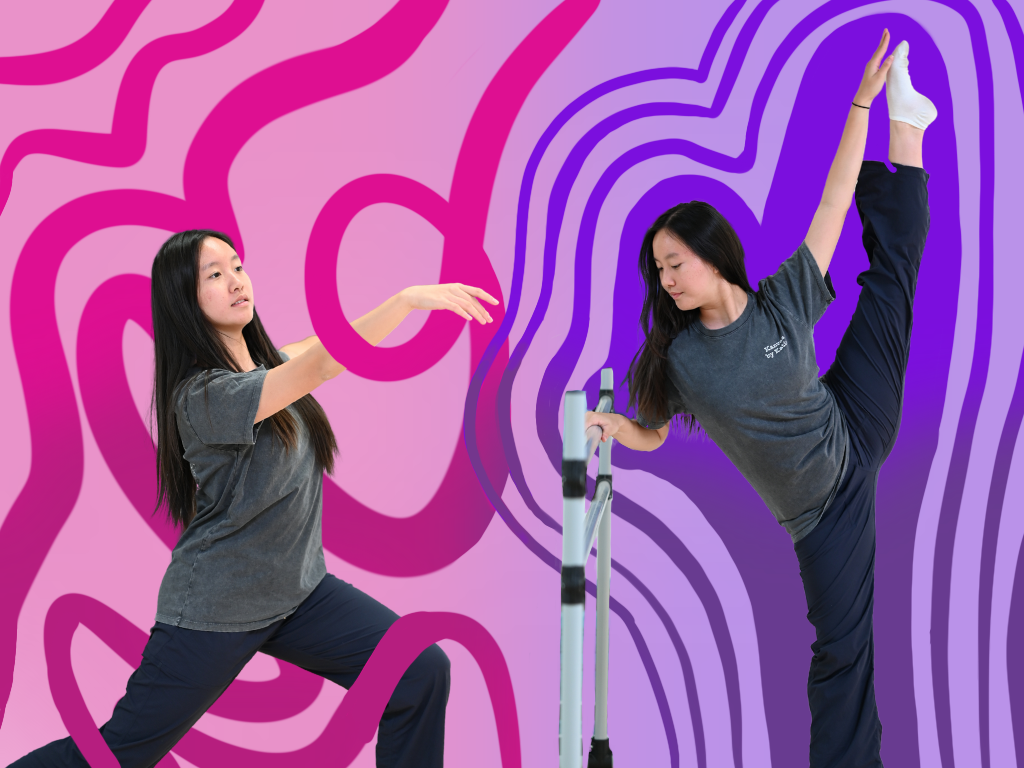Viewers push Paralympics to the side after the Olympics
Wikimedia Commons
Paralympic athletes race against one another in the women’s T54 1500-meter race. Athletes are eligible in T54 races if they have spinal cord injuries and use only their upper-body muscles in the race.
October 11, 2016
Disabled athletes from all over the world gathered to compete in their respective sports from Sept. 7 to Sept. 18 in the Rio Paralympics.
While the Summer Olympics in August still remain fresh in many students’ minds, its counterpart, the Paralympics, has not received as much attention. The Summer Olympics drew in an average of 25.4 million viewers while the Paralympics peaked at 2 million viewers during the opening ceremony.
“The people that participate are very hardworking,” Patrick Zhong (11), who watched the Paralympics, said. “They spend a lot time preparing just like other Olympic athletes, and they deserve to be rewarded for that.”
Paralympians include athletes with disabilities ranging from amputated limbs and visual impairments to missing fingers and ligament injuries that would prevent them from competing in the regular Olympics. This year, 4,359 athletes from 163 different countries competed, and more than 2 million Paralympics tickets were sold, the second highest amount of ticket sales in Paralympics history.
A total of 210 new world records were set, including Algerian runner Abdellatif Baka’s three-minute, 48.29-second time in the men’s visually impaired 1,500-meter run. Three other visually impaired athletes running the men’s 1,500-meter also surpassed the previous world record.
“The most memorable moment was watching them finish the races,” Gina Partridge (9) said. “Especially for swimming there were some people who didn’t have arms but they still managed to finish with incredible times.”
Some of the students who did watch the games or read articles about it believed that there was a lot to learn from the Paralympic athletes.
“I am inspired that, despite their physical abilities, [Paralympic athletes] are still trying to compete,” Albert Pun (12) said. “I think most people only want to see the best when they are watching the Olympics, and I think the regular Olympics is more exciting for them.”
The next Paralympics Games will take place in Korea in 2018 and will be based on winter sports.
“This piece was originally published in the pages of The Winged Post on October 11, 2016.“


















![“[Building nerf blasters] became this outlet of creativity for me that hasn't been matched by anything else. The process [of] making a build complete to your desire is such a painstakingly difficult process, but I've had to learn from [the skills needed from] soldering to proper painting. There's so many different options for everything, if you think about it, it exists. The best part is [that] if it doesn't exist, you can build it yourself," Ishaan Parate said.](https://harkeraquila.com/wp-content/uploads/2022/08/DSC_8149-900x604.jpg)




![“When I came into high school, I was ready to be a follower. But DECA was a game changer for me. It helped me overcome my fear of public speaking, and it's played such a major role in who I've become today. To be able to successfully lead a chapter of 150 students, an officer team and be one of the upperclassmen I once really admired is something I'm [really] proud of,” Anvitha Tummala ('21) said.](https://harkeraquila.com/wp-content/uploads/2021/07/Screen-Shot-2021-07-25-at-9.50.05-AM-900x594.png)







![“I think getting up in the morning and having a sense of purpose [is exciting]. I think without a certain amount of drive, life is kind of obsolete and mundane, and I think having that every single day is what makes each day unique and kind of makes life exciting,” Neymika Jain (12) said.](https://harkeraquila.com/wp-content/uploads/2017/06/Screen-Shot-2017-06-03-at-4.54.16-PM.png)








![“My slogan is ‘slow feet, don’t eat, and I’m hungry.’ You need to run fast to get where you are–you aren't going to get those championships if you aren't fast,” Angel Cervantes (12) said. “I want to do well in school on my tests and in track and win championships for my team. I live by that, [and] I can do that anywhere: in the classroom or on the field.”](https://harkeraquila.com/wp-content/uploads/2018/06/DSC5146-900x601.jpg)
![“[Volleyball has] taught me how to fall correctly, and another thing it taught is that you don’t have to be the best at something to be good at it. If you just hit the ball in a smart way, then it still scores points and you’re good at it. You could be a background player and still make a much bigger impact on the team than you would think,” Anya Gert (’20) said.](https://harkeraquila.com/wp-content/uploads/2020/06/AnnaGert_JinTuan_HoHPhotoEdited-600x900.jpeg)

![“I'm not nearly there yet, but [my confidence has] definitely been getting better since I was pretty shy and timid coming into Harker my freshman year. I know that there's a lot of people that are really confident in what they do, and I really admire them. Everyone's so driven and that has really pushed me to kind of try to find my own place in high school and be more confident,” Alyssa Huang (’20) said.](https://harkeraquila.com/wp-content/uploads/2020/06/AlyssaHuang_EmilyChen_HoHPhoto-900x749.jpeg)











